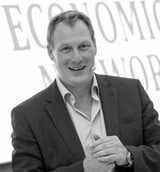At a press conference on Wednesday, the Federal Council issued a warning: Due to the worsening international energy crisis, drastic measures could also be taken in Switzerland in autumn and winter. In the worst case, the authorities would even cut off the electricity.
What triggers such announcements in the population and how likely are changes in behavior in the individual? A conversation with the behavioral economist Gerhard Fehr.
SRF News: Will anarchy break out if the announced energy shortage actually materializes?
Gerhard Fehr: There is no reason to be overly concerned. The current energy crisis will certainly not lead to anarchy. On the contrary: In the future there will probably be more state regulation and fewer degrees of freedom for the individual.
However, the changed circumstances can also have positive effects. When it comes to energy, we are talking about a so-called «no product». Most people today are unaware of the price of what they consume. A correction can only take place when there is a shortage.
How can politics affect people?
Behavioral economics basically knows four types of instruments to change people’s behavior: recommendations and appeals, incentives (prices, subsidies), so-called “nudgings” (small nudges to change behavior) and commands or prohibitions.
It is known from research that higher prices have the greatest effect. But they are dangerous for politics because they can have undesirable side effects. People react least to recommendations. Commandments and bans require the participation of the population.
Do all people react in the same way to these interventions in their everyday lives?
For several years we have been measuring the so-called “sustainability preferences” of the Swiss population. They illustrate how strongly someone is willing to adapt their lives in order to protect the environment. About a third of Swiss people have a positive attitude in this regard. They are very open to making adjustments in their lifestyle. At the other end of the scale are the 15 percent of the population who have a negative preference. Appeals for behavioral changes fall on deaf ears or even trigger a counter-reaction.
The vast majority of the population is in the middle. These people have a conditional preference for sustainability – i.e. they react differently depending on the topic.
What experiences are there from other countries?
It’s very simple: Wherever scarcity is already a reality, people are also adapting their behavior. Wherever energy and water prices do not reflect reality – examples can be found in the Middle East – the mechanisms do not work and waste occurs.
What is the best way to reduce your own energy requirements?
There are now great technical aids. For example, you can check your own water consumption when showering or you can install motion detectors in your home so that you only heat when you really need it.
The federal government has announced an awareness campaign – how do you assess the chances of success?
Basically, that’s not a bad thing. This certainly has an effect on the 30 percent of the population with a positive preference for sustainability. But you have to know: Such campaigns are very expensive and are associated with wastage.
With a view to autumn and winter, the most efficient would certainly be price measures that could be cushioned with targeted subsidies for financially disadvantaged sections of the population.
Patrick McEvily conducted the interview.
